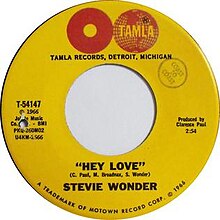
Stevland Hardaway Morris, known professionally as Stevie Wonder, is an American singer, songwriter, musician and record producer. A prominent figure in popular music during the second half of the 20th century, Wonder is one of the most successful songwriters and musicians. A virtual one-man band, his use of synthesizers and further electronic musical instruments during the 1970s reshaped the conventions of R&B. He also helped drive the genre into the album era, crafting his LPs as cohesive, consistent socially conscious statements with complex compositions. Wonder is often hailed as a "genius", and has been credited as a pioneer and influence to musicians of various genres including rhythm and blues, pop, soul, gospel, funk and jazz.
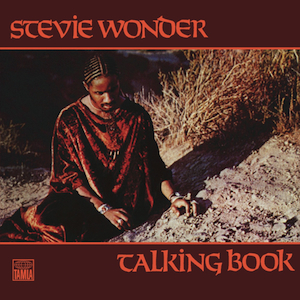
Talking Book is the fifteenth studio album by American singer, songwriter and musician Stevie Wonder, released on October 28, 1972, on the Tamla label for Motown Records. This album and Music of My Mind are widely noted as being the signal recordings of Wonder's "classic period". The sound of the album is sharply defined by Wonder's keyboard work, especially with synthesizers. His use of the Hohner clavinet model C on "Superstition" is widely regarded as one of the definitive tracks featuring the instrument.
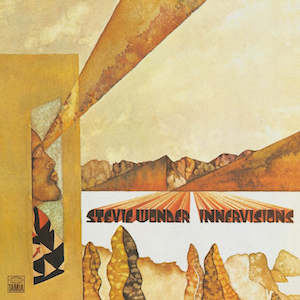
Innervisions is the sixteenth studio album by American singer, songwriter and musician Stevie Wonder, released August 3, 1973, on the Tamla label for Motown Records, a landmark recording of his "classic period". It is also regarded as Wonder's transition from Little Stevie Wonder and romantic ballads to a more musically mature, conscious and grown-up artist. With Wonder being the first artist to experiment with the ARP synthesizer on a large scale, Innervisions became hugely influential on the subsequent future of commercial black music.

Angela Lisa Winbush is an American R&B/soul singer-songwriter, musician and record producer who rose to fame first in the 1980s R&B duo René & Angela, also scoring hits as a solo artist. To date, Winbush has sold over 10 million albums and singles worldwide.

The Gap Band was an American R&B and funk band that rose to fame during the 1970s and 1980s. The band consisted of three brothers Charlie, Ronnie, and Robert Wilson; and it was named after streets in the historic Greenwood neighborhood in the brothers' hometown of Tulsa, Oklahoma. After 43 years together, they retired in 2010.

Music of My Mind is the fourteenth studio album by American soul musician Stevie Wonder. It was released on March 3, 1972, by Tamla Records, and was Wonder's first to be recorded under his new contract with Motown, which allowed him full artistic control. For the album, Wonder recruited electronic music pioneers Malcolm Cecil and Robert Margouleff as co-producers, employing their custom TONTO synthesizer on several tracks. It was a modest commercial success, but critics found the record representative of Wonder's artistic growth, and is generally considered by contemporary critics to be the first album of his classic period.
Donell Jones is an American singer, songwriter and record producer. He is most notable for the hits "U Know What's Up," "Where I Wanna Be," and his cover of Stevie Wonder's "Knocks Me Off My Feet." Jones' first studio album My Heart, was released in 1996, but he is best known for his late 1990s release of his second album Where I Wanna Be.
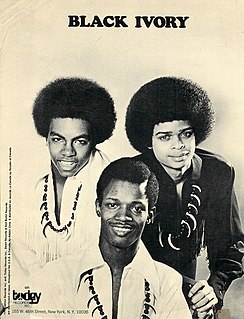
Black Ivory is an American R&B group from Harlem, which had a number of hits in the 1970s, including "Don't Turn Around", "You and I", "I'll Find a Way ", "Spinning Around", "What Goes Around ", "Will We Ever Come Together", and "Mainline".

Bettye LaVette is an American soul singer-songwriter who made her first record at sixteen, but achieved only intermittent fame until 2005, with her album I've Got My Own Hell to Raise. Her eclectic musical style combines elements of soul, blues, rock and roll, funk, gospel, and country music.

Down to Earth is the sixth studio album by American singer-songwriter Stevie Wonder, released on November 16, 1966 on the Tamla (Motown) label. The album was a departure from Wonder's earlier, teen pop-driven albums, and, along with its predecessor, Up-Tight, it re-established the sixteen-year-old Wonder, whose voice had recently changed, as a Motown hitmaker.
"For the Love of You" is a song recorded by The Isley Brothers, who released the song as the second single off their 1975 album, The Heat Is On. The record showcased the two sides of the act, with the album's first single "Fight the Power" reflecting a fast-paced funk vibe while showcasing a ballad side on the latter. The song later became a crossover hit for the brothers.

Born & Raised is the second studio album by German recording artist Joy Denalane. It was released by Nesola Records and Four Music on August 11, 2006 in German-speaking Europe, featuring production by No I.D., Jake One, BAB Gardeat and executive producer Max Herre. American rappers Lupe Fiasco, Raekwon and Governor appear as guest vocalists on the album. The album reached number 2 on the Media Control albums chart, making it Denalane's highest-charting record to date, and spawned four singles: "Let Go", Raekwon-cover "Heaven or Hell", "Sometimes Love" and "Change". "Change" was featured in the 2008 blockbuster film Taken directed by Pierre Morel starring Liam Neeson. The song was played twice, once during the birthday party and again during the concert.
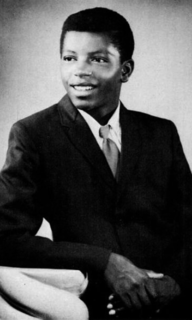
Carl Carlton is an American R&B, soul, and funk singer-songwriter, best known for his hits "Everlasting Love" and "She's a Bad Mama Jama ".
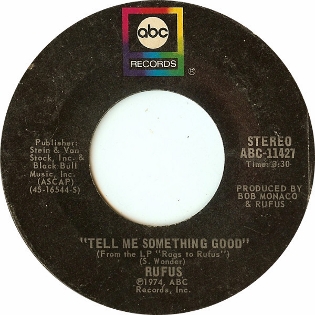
"Tell Me Something Good" is a song by Rufus and Chaka Khan, written by Stevie Wonder and released in 1974. The single was a hit in the United States, peaking at number three on the Billboard Hot 100 and spent one week at number one on the Cash Box Top 100. It was among the earliest hits to use the guitar talk box, by Tony Maiden.
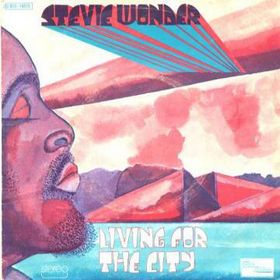
"Living for the City" is a 1973 single by Stevie Wonder from his Innervisions album. It reached number 8 on the Billboard Hot 100 chart and number 1 on the R&B chart. Rolling Stone ranked the song number 105 on their list of the "500 Greatest Songs of All Time".
"They Won't Go When I Go" is a song co-written and performed by Stevie Wonder from his 1974 album Fulfillingness' First Finale.
"Hey Love " is a song by American R&B singer R. Kelly and Public Announcement featuring Mr. Lee, on their debut album Born into the 90's. The song incorporates the melody and lyrics of Stevie Wonder's "Hey Love" from his 1966 album Down to Earth. It reached number one on the Bubbling Under Hot 100 chart in Billboard and number 15 on the R&B chart.
"Let Me Down Easy" is a song that was first recorded in 1965 by American soul singer Bettye LaVette. It was written by Dee Dee Ford, who copyrighted in 1965 under her married name, Wrecia Holloway. The original recording by LaVette, released as a single by Calla Records, peaked at number 20 on the Billboard Hot Rhythm and Blues Singles chart.
"Gotta Have You" is a 1991 song by American rhythm and blues singer Stevie Wonder. The song was the first release from the 1991 soundtrack to the film Jungle Fever. Wonder wrote the song, and co-produced it with Nathan Watts.The song peaked at No. 3 in the Hot R&B/ Hip Hop chart, making it one of Wonder's very few Top 10s of the 90s.
